

November 16 – 22: “Oh, the Holidays…can we integrate them into our plots in a seamless way?”
 Oh, the holidays…this week we’re joined by ITW Members Paul McGoran, John Hegenberger, Patrick Kendrick, J.D. Horn, John Gaspard, Judy Penz Sheluk, Elizabeth Edmondson and Nina Mansfield to discuss whether or not the holidays can be integrated seamlessly into our plots?
Oh, the holidays…this week we’re joined by ITW Members Paul McGoran, John Hegenberger, Patrick Kendrick, J.D. Horn, John Gaspard, Judy Penz Sheluk, Elizabeth Edmondson and Nina Mansfield to discuss whether or not the holidays can be integrated seamlessly into our plots?
~~~~~
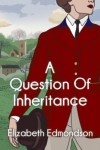 Elizabeth Edmondson writes what she likes to call Vintage Mysteries, since they’re set in the nineteen-thirties, forties and fifties. They’re stories of love and marriage, families and friendship, in which the loyalties, feuds, secrets and betrayals of the past cast long shadows into the present. She’s fascinated by characters who are quirky, mysterious, funny, unexpected and interesting and wants readers to share, as she does, in their joys and sorrows. With dramatic and glamorous settings from icy lakes to Italian villas, from wintry Budapest to fashionable France, from Cornwall to the Lake District, the landscapes are as powerful as the stories are complex. The tense realities of life mingle with supernatural elements : ghosts, prophetic dreams and voices from the past, but fun and humour also dance in and out of the light and darkness of the stories. Elizabeth’s aim is to enthrall, delight and amuse readers as they are transported to a different era.
Elizabeth Edmondson writes what she likes to call Vintage Mysteries, since they’re set in the nineteen-thirties, forties and fifties. They’re stories of love and marriage, families and friendship, in which the loyalties, feuds, secrets and betrayals of the past cast long shadows into the present. She’s fascinated by characters who are quirky, mysterious, funny, unexpected and interesting and wants readers to share, as she does, in their joys and sorrows. With dramatic and glamorous settings from icy lakes to Italian villas, from wintry Budapest to fashionable France, from Cornwall to the Lake District, the landscapes are as powerful as the stories are complex. The tense realities of life mingle with supernatural elements : ghosts, prophetic dreams and voices from the past, but fun and humour also dance in and out of the light and darkness of the stories. Elizabeth’s aim is to enthrall, delight and amuse readers as they are transported to a different era.
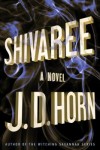 J.D. Horn was raised in rural Tennessee and has carried a bit of its red clay with him while traveling the world, from Hollywood to Paris to Tokyo. He studied comparative literature as an undergrad, focusing on French and Russian in particular. He also holds an MBA in international business and worked as a financial analyst before becoming a novelist. Along with his spouse, Rich, and his furry co-authors, Duke and Sugar, he divides his time between Black Butte Ranch, Oregon, and San Francisco, California.
J.D. Horn was raised in rural Tennessee and has carried a bit of its red clay with him while traveling the world, from Hollywood to Paris to Tokyo. He studied comparative literature as an undergrad, focusing on French and Russian in particular. He also holds an MBA in international business and worked as a financial analyst before becoming a novelist. Along with his spouse, Rich, and his furry co-authors, Duke and Sugar, he divides his time between Black Butte Ranch, Oregon, and San Francisco, California.
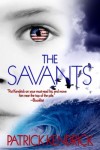 Patrick Kendrick is an award winning author of several thrillers, including: Papa’s Problem, a Florida Book Award and Hollywood Film Festival Award winner. Extended Family, which earned a starred review from Booklist. His newest crime thriller, Acoustic Shadows, was published by HarperCollins in June and is a Royal Palm Literary Award Finalist. The Savants, a sci-fi, political thriller is his first YA novel, and is published by Suspense Publishing. A former firefighter and freelance journalist, he lives in Florida close to the sea.
Patrick Kendrick is an award winning author of several thrillers, including: Papa’s Problem, a Florida Book Award and Hollywood Film Festival Award winner. Extended Family, which earned a starred review from Booklist. His newest crime thriller, Acoustic Shadows, was published by HarperCollins in June and is a Royal Palm Literary Award Finalist. The Savants, a sci-fi, political thriller is his first YA novel, and is published by Suspense Publishing. A former firefighter and freelance journalist, he lives in Florida close to the sea.
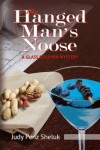 Judy Penz Sheluk’s debut mystery, The Hanged Man’s Noose, was published July 2015. Her short crime fiction is included in The Whole She-Bang 2, World Enough and Crime, and Flash and Bang. In addition to the ITW, Judy is a member of Sisters in Crime, Crime Writers of Canada, and the Short Mystery Fiction Society.
Judy Penz Sheluk’s debut mystery, The Hanged Man’s Noose, was published July 2015. Her short crime fiction is included in The Whole She-Bang 2, World Enough and Crime, and Flash and Bang. In addition to the ITW, Judy is a member of Sisters in Crime, Crime Writers of Canada, and the Short Mystery Fiction Society.
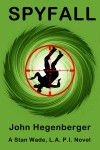 Born and raised in the heart of the heartland, Columbus, Ohio, John Hegenberger is the author of several upcoming series: Stan Wade LAPI in 1959, Eliot Cross Columbus-based PI in 1988, Tripleye, the first PI agency on Mars, and Ace Hart, western gambler in Arizona in 1873. He’s the father of three, tennis enthusiast, collector of silent films and OTR, hiker, Francophile, B.A. Comparative Lit., Pop culture author, ex-Navy, ex-marketing exec at Exxon, AT&T, and IBM, happily married for 45 years and counting.
Born and raised in the heart of the heartland, Columbus, Ohio, John Hegenberger is the author of several upcoming series: Stan Wade LAPI in 1959, Eliot Cross Columbus-based PI in 1988, Tripleye, the first PI agency on Mars, and Ace Hart, western gambler in Arizona in 1873. He’s the father of three, tennis enthusiast, collector of silent films and OTR, hiker, Francophile, B.A. Comparative Lit., Pop culture author, ex-Navy, ex-marketing exec at Exxon, AT&T, and IBM, happily married for 45 years and counting.
 Paul McGoran lives in Newport, Rhode Island. In his lives before fiction, he was a Russian language interpreter for the Navy, a marketing executive, a management consultant, and a day trader. The most satisfactory aspect of fiction writing for Paul is disappearing into the heads of his characters. Writers like him suffer from a kind of multiple personality disorder–minus some of the negative clinical implications. Made For Murder, a noir thriller, is his first novel.
Paul McGoran lives in Newport, Rhode Island. In his lives before fiction, he was a Russian language interpreter for the Navy, a marketing executive, a management consultant, and a day trader. The most satisfactory aspect of fiction writing for Paul is disappearing into the heads of his characters. Writers like him suffer from a kind of multiple personality disorder–minus some of the negative clinical implications. Made For Murder, a noir thriller, is his first novel.
 In real life, John Gaspard’s not a magician, but he has directed six low-budget features that cost very little and made even less – that’s no small trick. He’s also written multiple books on the subject of low-budget filmmaking. Ironically, they’ve made more than the films. His blog, “Fast, Cheap Movie Thoughts” has been named “One of the 50 Best Blogs for Moviemakers” and “One of The 100 Best Blogs For Film and Theater Students.” He’s also written for TV and the stage. John lives in Minnesota and shares his home with his lovely wife, several dogs, a few cats and a handful of pet allergies.
In real life, John Gaspard’s not a magician, but he has directed six low-budget features that cost very little and made even less – that’s no small trick. He’s also written multiple books on the subject of low-budget filmmaking. Ironically, they’ve made more than the films. His blog, “Fast, Cheap Movie Thoughts” has been named “One of the 50 Best Blogs for Moviemakers” and “One of The 100 Best Blogs For Film and Theater Students.” He’s also written for TV and the stage. John lives in Minnesota and shares his home with his lovely wife, several dogs, a few cats and a handful of pet allergies.
 Nina Mansfield is a Greenwich, Connecticut based writer. Her debut novel, SWIMMING ALONE, a young adult mystery, was published by Fire & Ice YA in August 2015. Nina began her writing career as a playwright; she has written numerous plays, which have been published and produced throughout United States and internationally. Nina’s short mystery fiction has appeared in Ellery Queen Mystery Magazine and Mysterical-E.
Nina Mansfield is a Greenwich, Connecticut based writer. Her debut novel, SWIMMING ALONE, a young adult mystery, was published by Fire & Ice YA in August 2015. Nina began her writing career as a playwright; she has written numerous plays, which have been published and produced throughout United States and internationally. Nina’s short mystery fiction has appeared in Ellery Queen Mystery Magazine and Mysterical-E.
- LAST GIRL MISSING with K.L. Murphy - July 25, 2024
- CHILD OF DUST with Yigal Zur - July 25, 2024
- THE RAVENWOOD CONSPIRACY with Michael Siverling - July 19, 2024
